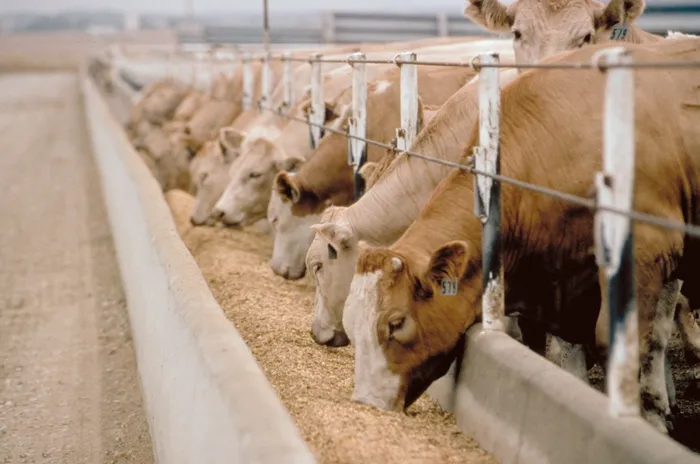
Properties in Velddrif and Bredasdorp from which cattle had been moved have been placed under quarantine.
Image: File
TWO more properties in Velddrif and Bredasdorp from which cattle had been moved on October 30 have been placed under quarantine and will be inspected following concerns about foot-and-mouth disease (FMD).
This after a farmer in the Free State reported suspected FMD lesions in cattle recently transported from the Gouda area in the Western Cape.
In response, Western Cape Veterinary Services placed the property in Gouda under quarantine. During inspection, veterinarians observed suspected lesions in the animals’ mouths. Samples have been collected and sent for laboratory testing to confirm or rule out FMD.

Delegates gathered at the Foot and Mouth Disease (FMD) Indaba in Durban, united in their commitment to combat FMD outbreaks in KwaZulu-Natal.
Image: Department of Agriculture and Rural Development
“The origin of the potentially infected cattle is still being verified. The transport company responsible for moving the animals is under investigation, and all properties linked to this company over the past 30 days will be contacted and inspected,” said Western Cape Department of Agriculture spokesperson Mary James.
Meanwhile livestock stakeholders gathered under one roof for the two-day FMD Indaba held in Durban united to address FMD outbreaks in KwaZulu-Natal.
Delegates voiced their determination to implement effective measures that would not only control the disease but also enhance market access for communal farmers, ensuring the resilience of the agricultural industry.
KZN Agriculture and Rural Development MEC Thembeni kaMadlopha-Mthethwa was optimistic that the indaba, supported by stakeholder commitment, would deliver enduring solutions to overcome industry hurdles and achieve FMD-free zonal status.
“Alarmed by the recent escalation of Foot and Mouth Disease cases springing up across the province, the summit calls upon the state and all livestock industry stakeholders to find solutions that will end the current FMD outbreak,” the department said.
FMD is highly contagious and spreads through direct contact between infected animals, as well as via contaminated vehicles, equipment, feed and clothing. It affects cloven-hoofed animals such as cattle, sheep, goats, and pigs, causing painful sores in the mouth and on the feet. It does not affect humans.
To prevent its spread, farm biosecurity measures must be implemented and maintained, all cloven-hoofed animals must be transported with a health declaration and a declaration that they will be kept in isolation at the destination for 28 days.
All movements of livestock into and within the Western Cape must be reported via the online form at https://tinyurl.com/AnimalMovementApp. This enables Western Cape Veterinary Services to track and monitor high-risk movements.
Cape Times